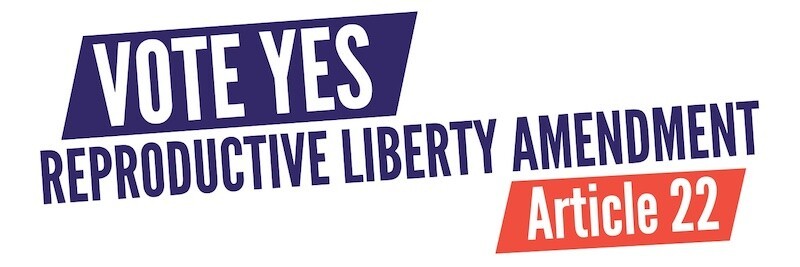The Right to Choose Is a Moral and Economic Imperative; VT Businesses Cannot Be Silent

This commentary was written by leaders at Seventh Generation, Burton Snowboards and Ben & Jerry’s Homemade, Inc., all Certified B Corporations and longtime members of Vermont Businesses for Social Responsibility.
As seen in Vermont Business Magazine, VTDigger, The Rutland Herald, The Mountain Times and The Caledonian Record.
Silence is complicity, so whether you’re a solopreneur or one of the state’s largest and most iconic brands, it’s time to take a firm stance on reproductive rights. Vermont employers have a critical role to play in defending and advancing access to essential care for their workers, consumers, and communities. That’s why we’re calling on businesses across the state to endorse Article 22, the Reproductive Liberty Amendment—a historic opportunity to permanently enshrine reproductive rights in our state constitution.
As business leaders, we consider a person’s right to choose to be not only a moral imperative but an economic one as well. In short, a Vermonter who can make decisions about their own reproductive health care, including whether to become pregnant, use birth control, or seek abortion care, is a Vermonter with a firm grip on the reins of their financial future.
Not having enough money to care for a child or support another one is the most common reason people give for wanting to end a pregnancy and Vermonters are rightfully concerned about the financial consequences of carrying a pregnancy to term. In fact, someone who is denied access to abortion and forced to give birth is more likely to experience household poverty lasting at least four years; more likely to not have the resources to cover basic living expenses like food, housing, and transportation; more likely to have lower credit scores and higher debt loads; and their children are more likely to live below the federal poverty level.
On the other hand, providing access to the full range of reproductive health care helps people who can become pregnant control their lives, their health, and their futures. States that have adopted policies that afford their citizens more control over their bodies are also the states where women have more economic opportunity. In fact, women living in states with stronger reproductive health care have higher earnings and report less occupational segregation; are less likely to work part time, meaning they have higher earning potential, more robust benefits, and more upward mobility in the workplace; and they are more likely to transition between occupations and from unemployment into employment.
There is also a fundamental connection between reproductive rights and racial justice, as the impacts of abortion restrictions fall largely on people of color and people with low incomes. People of color are disproportionately prosecuted in states where abortion is criminalized, experience higher rates of infant and maternal mortality, and have historically been denied access to care due to racism and structural inequities. Meanwhile, according to a study by the Institute for Women’s Policy Research, the legalization of abortion in the 1970s led to a 9.6% increase in Black women’s college graduation rate and a 6.9% increase in Black women’s labor market participation rate—a figure three times higher than the rate for women writ large.
Yet, across the country we are seeing vicious attacks on reproductive rights and access to care has reached a crisis point. The U.S. Supreme Court’s disgraceful decision to overturn the landmark Roe v. Wade decision has only paved the way for even more, as local, state, and national leaders continue to rob people who can become pregnant of their personhood. While many of our businesses have already taken steps to preserve reproductive liberty for our employees—offering travel assistance, paid leave, and other benefits to help those living in places where abortion is restricted seek care elsewhere—what we need is systemic change.
The fight to permanently protect reproductive care has never been more urgent but there is a growing chorus of businesses voicing their support for reproductive choice. Some have never used their platform like this before but have chosen to do so in this moment because this time is different, this time we have a chance to create lasting change here in Vermont and inspire change elsewhere by becoming the first in the nation to constitutionally ensure reproductive health care access.
In the face of a Supreme Court hell-bent on dismantling our civil liberties and decades of progressive reforms, please help put our brave little state on the right side of history and join us in endorsing the Reproductive Liberty Amendment today.
Sincerely,
Alison Whritenour, CEO, Seventh Generation
Donna Carpenter, Co-founder, Owner, and Chair, Burton Snowboards
Matthew McCarthy, CEO, Ben & Jerry’s Homemade, Inc.
Related – Read “Our Moment to Lead: Vermont in the Wake of SCOTUS Decisions,” by Roxanne Vought, VBSR Executive Director
-
No Events Today